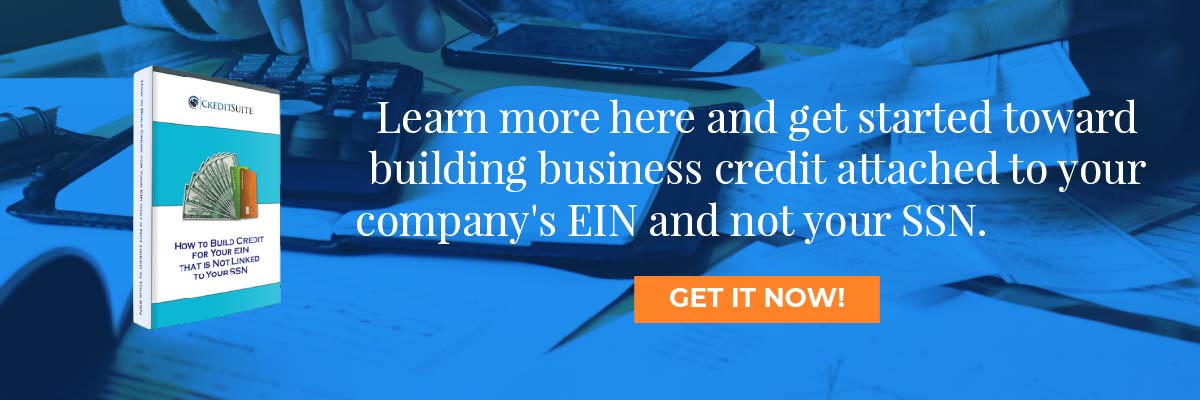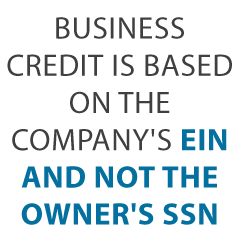- Connect With Us!
- (877) 600-2487
- info@creditsuite.com
5 Credit Score Hacks Every Business Owner Should Know
Published By Janet Gershen-Siegel at May 3rd, 2018
Do You Know These Credit Score Hacks?
Do you know how to hack your business credit score? Read on as we show you five credit score hacks for every business owner.
Establishing business credit means that your firm acquires chances you never believed you would. You can get all-new equipment, bid on buildings, and cover the company payroll. And you can do so even when times are a bit lean. This is especially helpful in holiday firms, where you can go for months with simply negligible sales.
Because of this, you need to focus on building your company credit. Improve and maintain your scores and you will have these chances. Do not, and either you do not get these business opportunities, or they will set you back you a lot more. And no entrepreneur wants that. You need to understand what affects your company credit before you can make it better.
Credit Score Hacks: 5. Your Payment History is Important
Late payments will impact your small business credit score for a good seven years. You will need to pay your business debts off, as fast as possible and as fully as possible. If you are able to do so, then you can make a very real difference when it concerns your credit scores. Make certain to pay without delay and you will enjoy the rewards of punctuality.
And pay your personal debts off as fast as possible. Pay them off in full if you can. Check Hack #3 for why this is so vital.
Your payment patterns and history are a driving force in your overall credit score. Over time, paying your bills on schedule will help establish your company as one that pays their financial obligations. This will undoubtedly help push your rating up and show other business you are a low risk.
If you pay attention to none of the other credit score hacks, you will still do well to practice this one.
Learn more here and get started toward building business credit attached to your company’s EIN and not your SSN.
Credit Score Hacks: 4. Keep Your Debt-to-Income Ratio in Check
Credit utilization rate just means the amount of cash you have on credit which is then divided by your total available credit.
The more debt you have on your plate, the more invoices you have, as well as the less disposable income you have. If your total debt approaches or surpasses your income level, then you’re probably to be seen as high-risk.
Keep your debts in check and regularly pay them off to maintain a healthy balance between what you make and what you owe.
Lenders commonly do not wish to see this exceed 30%. So for every $100 in credit, do not borrow on more than $30 of that. If this percent is rising, you’ll need to spend down. And be sure to work off your financial obligations ahead of borrowing more.
Credit Score Hacks: 3. Your Personal Credit Can Have an Effect on Your Corporate Credit
Are you having a bad business year? Then it could end up on your consumer credit score. And in case your small business has not been in existence for too long, it will directly impact your corporate credit.
Nonetheless, you can unlink the two by taking measures to split up them. Open a separate bank account just for the business. And use your business credit cards for your business only. The same is true in reverse – don’t use your personal credit to pay business expenses.
Keep this up, and the credit reporting agencies will start to treat your personal and small business credit separately.
Also, make sure to incorporate. Or at least file a DBA (doing business as) status. You can also take care of your company’s invoices with your company credit card or checking account, and make certain it is the company’s full name on the bill and not your own.
Your own personal credit is fair game when it concerns your Intelliscore Plus rating. Running a company is hard work, yet don’t let your personal finances suffer. Make certain that you remain on top of your personal monthly expenses. Stay clear of unnecessary credit inquiries. And do not compromise your personal credit for business needs.
Credit Score Hacks: 2. Credit History Length Matters
This is in essence the length of time your firm has been using business credit. Of course newer businesses will have brief credit histories. While there is not a lot you can specifically do about that, do not fret.
Credit reporting bureaus will also take a look at your personal credit score and your own history of payments. If your own personal credit is excellent, and especially if you have a fairly lengthy credit history, then your individual credit can come to the rescue of your business. That is, you did not just get your first credit card recently.
Naturally the opposite is also right– if your personal credit history is poor, then it will impact your corporate credit scores until your company and consumer credit can be split.
Credit Score Hacks: 1. The Credit Reporting Bureaus Can Get it Wrong
Irrespective of what your credit score is, it is crucial that you continue to be thorough and examine your personal and business credit reports. This can help you discover possible issues and stay informed by yourself credit profile.
Just like as each and every organization out there, credit reporting agencies like Equifax and Experian are only as good as their files. If your business’s name is like another’s, or your name is a lot like another business owner’s, there can possibly be some mistakes.
So keep an eye on those reports, and your small business report at Dun & Bradstreet, PAYDEX. Stay on top of these reports and dispute charges with documentation and clear communications. Do not just allow them to stay wrong! You can correct this!
And while you’re at, it you should also be keeping track of the credit reporting bureau which exclusively handles personal and not business credit. So that is TransUnion. If you do not know exactly how to pull a credit report, do not worry. It is easy – just Google to find the links to the CRAs.
Learn more here and get started toward building business credit attached to your company’s EIN and not your SSN.
Credit Score Hacks: Bonus: Use Your Credit
Keeping your financial obligations low remains sound advice. Still, opening and responsibly making the most of company credit accounts can help you broaden your available credit and enhance your credit score.
Credit Score Hacks: Bonus: Monitoring Your Business Credit For Less
Know what is happening with your credit. Make sure it is being reported and address any errors ASAP. Get in the practice of taking a look at credit reports and digging into the specifics, and not just the scores.
We can help you monitor business credit at Experian and D&B for 90% less than it would cost you at the CRAs. See: fastcs.wpengine.com/monitoring.
At D&B you can monitor at: www.dandb.com/credit-builder. At Experian, you can monitor your account at: www.smartbusinessreports.com/Landing/1217/. And at Equifax, you can monitor your account at: www.equifax.com/business/business-credit-monitor-small-business. Experian and Equifax cost about $19.99; D&B ranges from $49.99 to $99.99.
Update Your Record
Update the data if there are errors or the details is incomplete. At D&B, you can do this at: https://iupdate.dnb.com/iUpdate/viewiUpdateHome.htm. For Experian, go here: www.experian.com/small-business/business-credit-information.jsp. So for Equifax, go here: www.equifax.com/business/small-business.
Credit Score Hacks: Bonus: Fix Your Business Credit
So, what’s all this monitoring for? It’s to challenge any problems in your records. You can fix mistakes in your credit reports. But the CRAs often want you to dispute in a particular way.
Get your business’s PAYDEX report at: www.dnb.com/about-us/our-data.html. Get your company’s Experian report at: www.businesscreditfacts.com/pdp.aspx?pg=SearchForm. And get your Equifax business credit report at: www.equifax.com/business/credit-information.
Disputes
Disputing credit report inaccuracies usually means you send a paper letter with copies of any proof of payment with it. These are going to be documents like receipts and cancelled checks. Never mail the original copies. Always send copies and retain the original copies.
Fixing credit report mistakes also means you specifically detail any charges you contest. Make your dispute letter as clear as possible. Be specific about the concerns with your report. Use certified mail so that you will have proof that you mailed in your dispute.
Dispute your or your small business’s Equifax report by following the directions here: www.equifax.com/small-business-faqs/#Dispute-FAQs.
You can dispute inaccuracies on your or your company’s Experian report by following the directions here: www.experian.com/small-business/business-credit-information.jsp.
And D&B wants you to dispute by phone. So their PAYDEX Customer Service contact number is here: www.dandb.com/glossary/paydex.
Learn more here and get started toward building business credit attached to your company’s EIN and not your SSN.
Credit Score Hacks: Takeaways
Hacks for your business credit score are really a fancy way of saying one thing. Be responsible. Pay your debts on time. Don’t put too much on credit. don’t neglect your personal credit. Keep your accounts open. Jump on any errors you find. Use your credit. Monitor what happens with it. Follow these suggestions and you will be well on your way to an excellent business credit score.
Once you know what impacts your small business credit score, you are that much nearer to building improved corporate credit. Learn more here and get started toward building business credit attached to your company’s EIN and not your SSN.

 " class="attachment-blog-single size-blog-single wp-post-image" alt="Get Business Credit Cards for New Businesses Credit Suite-Business Line of Credit Decoded" title="Get Business Credit Cards for New Businesses">>
" class="attachment-blog-single size-blog-single wp-post-image" alt="Get Business Credit Cards for New Businesses Credit Suite-Business Line of Credit Decoded" title="Get Business Credit Cards for New Businesses">>
